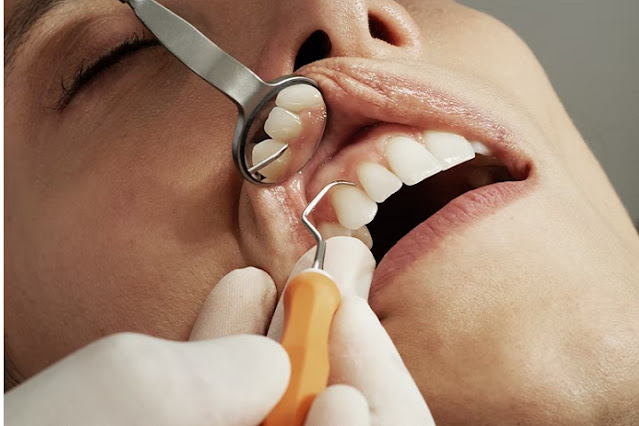Root Canal Specialist in Satellite Ahmedabad
Stressed because your dentist prescribed a root canal procedure?
Don’t be! It is one of the most common treatments, with over 15 million root canals taking place every year in the country. Let us take you through the basics.
What is a root canal?
A ‘root canal’ is an endodontic (endo: inside; dontic:teeth) treatment that removes only the diseased and infected part of a tooth, instead of removing the entire tooth.
Your tooth is made up of the white visible portion which is called enamel, a layer underneath called dentin, and tucked inside is a soft tissue – the pulp. The pulp is made up of blood vessels and nerves and helps the tooth to grow at the development stage. However, once the tooth is fully grown, the pulp is actually no longer required because the tooth gets its nourishment from the surrounding tissues.
Sometimes the pulp can get infected by bacteria which results in it getting inflamed. This infected pulp is removed in a root canal. The interior of the tooth is then treated to prevent further infection and then filled and sealed, to preserve your tooth and protect your smile.
Does a root canal hurt?
Contrary to popular belief, because a root canal is done under anaesthesia, it is actually no more painful than any other dental procedure, such as filling or removing a wisdom tooth. In fact,more often than not when a root canal is being done, it is to relieve the sharp pain of a toothache caused by the infected pulp.
There could however be a bit of numbness and soreness for a few days after the root canal, which could cause some mild discomfort, and the tooth the procedure was done on might feel a little different from your other teeth for some time. If you feel severe pain or pressure after your root canal, this is out of the ordinary and you should contact your dentist immediately.
When do I need a root canal?
A root canal could be required because of a cracked tooth, genetic reasons, issues arising from previous fillings, or because of deep cavities. The primary symptom of needing a root canal is when you notice your teeth are particularly sensitive to hot and cold sensations. Other factors that you might need to keep in mind include:
Decomposition of blackening of the gums
Swelling or tenderness in the gums
Pain when chewing
Pimples on the gum
How long does a root canal take?
A root canal is a relatively simple procedure and can be probably completed in two appointments. In the first appointment the actual root canal procedure is done and the infected pulp is removed. After a period of rest, in the second appointment the root canal is cleaned, disinfected and a filling is placed to prevent future infections. Each appointment can take up to approximately minutes.
What are the specific steps of a root canal?
A root canal is a relatively simple procedure. The process is as follows:
I. The dentist will examine and x-ray your teeth, after which they will apply a local anesthetic. After numbing your tooth, a small sheet (dental dam) will be placed on the area to sequester the tooth and ensure that it is free of oral fluids during the root canal.
II. A small opening will be made in the top of the tooth (the crown). The pulp inside the tooth will then be cleaned, as well as the root canals and the space will be shaped to prepare for the filling. All of this will be done with very small and specialized instruments, and because of the local anesthesia you should not feel anything at all.
III. The root canals will be filled with a bio- compatible material, usually gutta-percha. This is a rubbery material that will be placed to seal off the root canal. Usually a transitory filling is put in place to block the openings. This will be taken out at the time that your tooth is being restored.
IV. You will need to again visit your dentist for the final stage, which might involve the placing of a on the tooth to ensure that it retain all the functions of a fully healthy and natural tooth.




Comments
Post a Comment